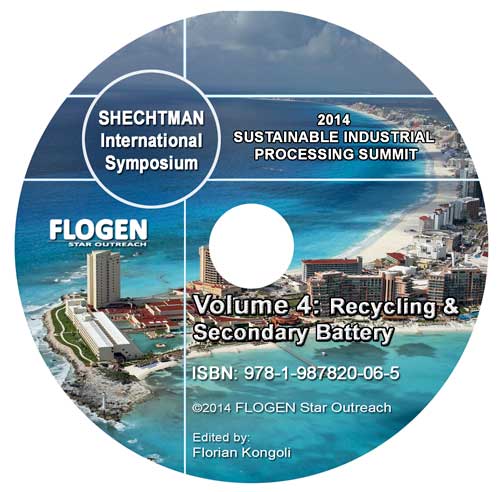2014-Sustainable Industrial Processing Summit
SIPS 2014 Volume 2: Mineral Processing
| Editors: | Kongoli F |
| Publisher: | Flogen Star OUTREACH |
| Publication Year: | 2014 |
| Pages: | 446 pages |
| ISBN: | 978-1-987820-04-1 |
| ISSN: | 2291-1227 (Metals and Materials Processing in a Clean Environment Series) |

CD shopping page
The impact of sensors for science and technology in the modern industrial society
Manfred Mauntz1; Jorn Peuser1;1CMC INSTRUMENTS GMBH, Eschborn, Germany (Deutschland);
Type of Paper: General Plenary
Id Paper: 404
Topic: 19
Abstract:
Formally, sensors detect physical or chemical properties and convert that information into usable data signals. Although they do not usually attract attention, life without them is unimaginable in the world today. Even in our immediate vicinity, more than a hundred sensors are found in various applications, whether in the car, on the phone, at home or in the field of medical technology.
Sensors play a vital role in controlling processes. They are the sense organs of modern industrial society. During evolution, there were often individual animal species with better sensors (sense organs), such as in search of food that allowed them a privileged position. This analogy can be transferred to technology. So one can achieve significant competitive advantages by "better" systems, since these often provide the basis for product improvements.
For measuring physical quantities, such as the temperature, suitable sensors are easily available, but for the determination of chemical parameters, e.g. the qualitative or quantitative chemical composition of substances, the chemical data has to be first converted into a physically measurable signal.
Piezo-electric and impedimetric transducers are used to make bio-sensors for living cells, for cytotoxicity tests or drug screening of new compounds.
The future challenges range from simple detection and monitoring to real-time acquisition of measured values and the practical use of the data on control platforms used by the operator. This requires an increased intelligence of the sensors at the site of application and the ability to bidirectionally communicate with other nodes in the network. In other words, a continuous and direct two-way communication to field level is the necessary starting position.
Therefore, the evolution and development of new enabling sensor technologies to support the growing decentralized data processing capabilities play a fundamental role in modern industrial society.